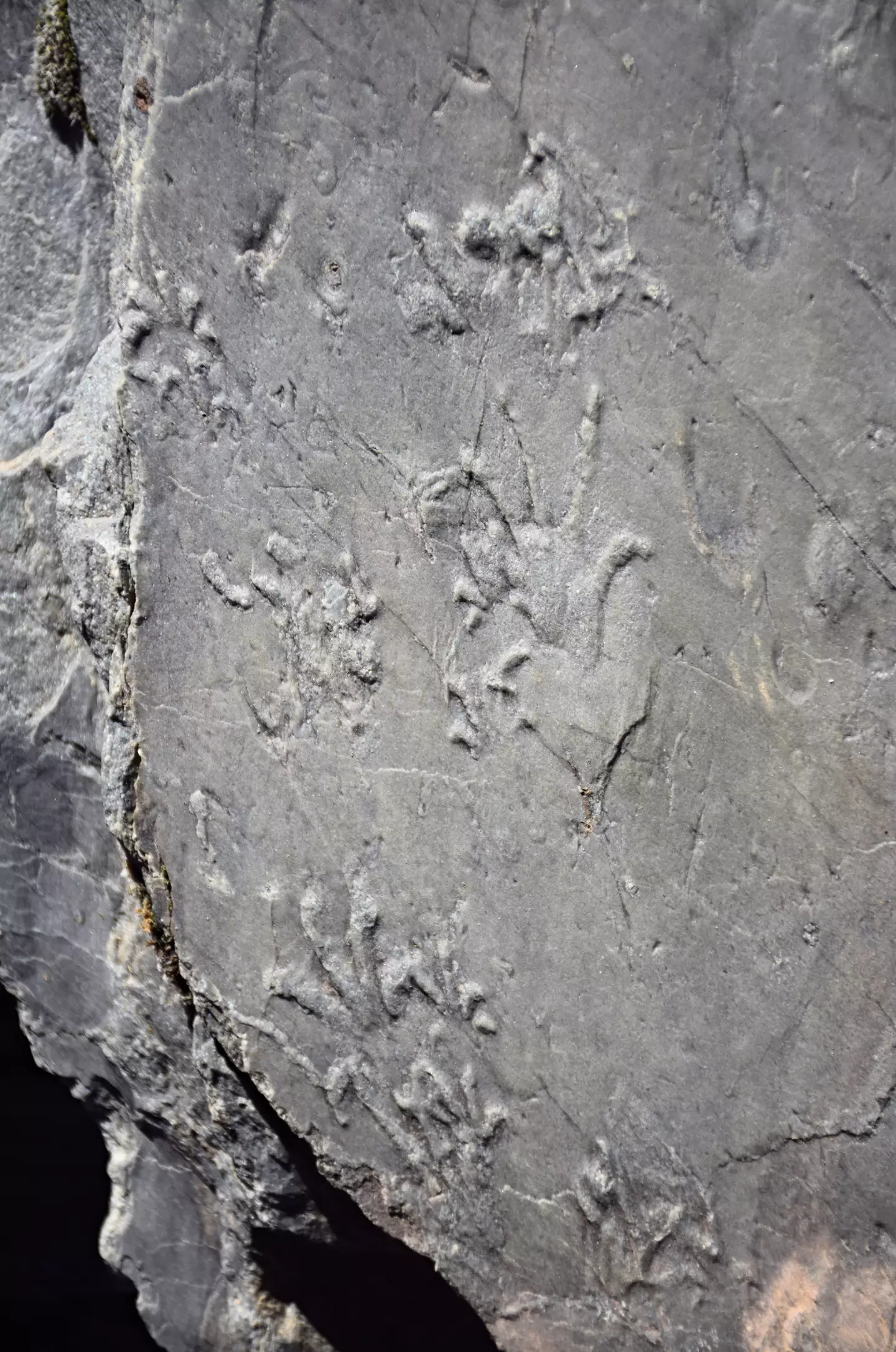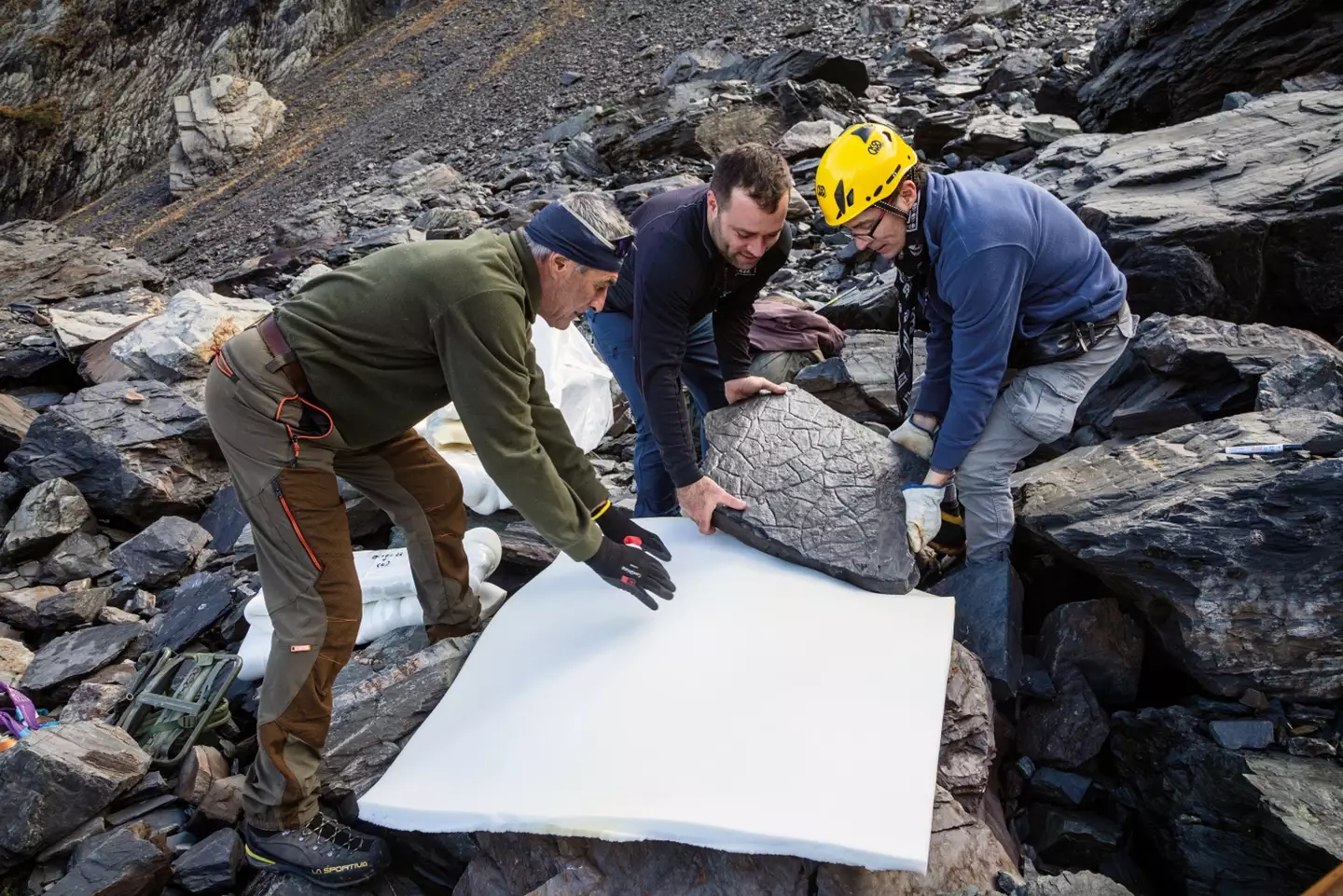
A woman has accidentally discovered a 280 million year old lost world.
The woman in question is Claudia Steffensen and she stumbled upon an ancient marking while out on a hike.
She was trekking through a trail in Lombardy, Italy, with her husband when she noticed a rock with ‘strange designs’.

Advert
Upon closer look, these unusual designs turned out to be animal tracks.
Sending her find to a research team, they unearthed an exciting fact about the footprints - they’re even older than dinosaurs.
The team have determined that they come from a prehistoric reptile that dates back to the Permian period, which is the age just before the dinosaurs roamed the Earth.
The woman’s unlikely discovery led the team to further investigate the area where they found hundreds of fossilized footprints.
These prints came from five different species of insects, amphibians and reptiles.
It's thought that some of these animals were huge in size and according to the research team, many were between six to 12 feet long.
But that wasn’t all - the researchers were able to uncover an entire ancient ecosystem.
Things like traces of seeds and leaves, imprints of raindrops and waves, and even imprints of fingernails and belly skin from some of the prehistoric animals were visible.

In a statement, co-researcher and paleontologist Ausonio Ronchi of the University of Pavia said: “The footprints were made when these sandstones and shales were still sand and mud soaked in water at margins of rivers and lakes, which periodically, according to the seasons, dried up.
“The summer sun, drying out those surfaces, hardened them to the point that the return of new water did not erase the footprints but, on the contrary, covered them with new clay, forming a protective layer.”
Speaking to the Guardian, Doriano Codega, president of the Valtellina Orobie nature park, said: “The discovery in the Ambria valley is also an effect of climate change.
“The exceptional thing was the altitude - these relics were found at very high levels and were very well preserved. This is an area subjected to landslides, so there were also rock detachments that brought to light these fossils.”
It’s hoped that the discovery of these fossils will shed some light into an ancient world that was lost to an extreme global temperature rise.
The researchers added: “The past has a lot to teach us about what we risk getting the world into now.”